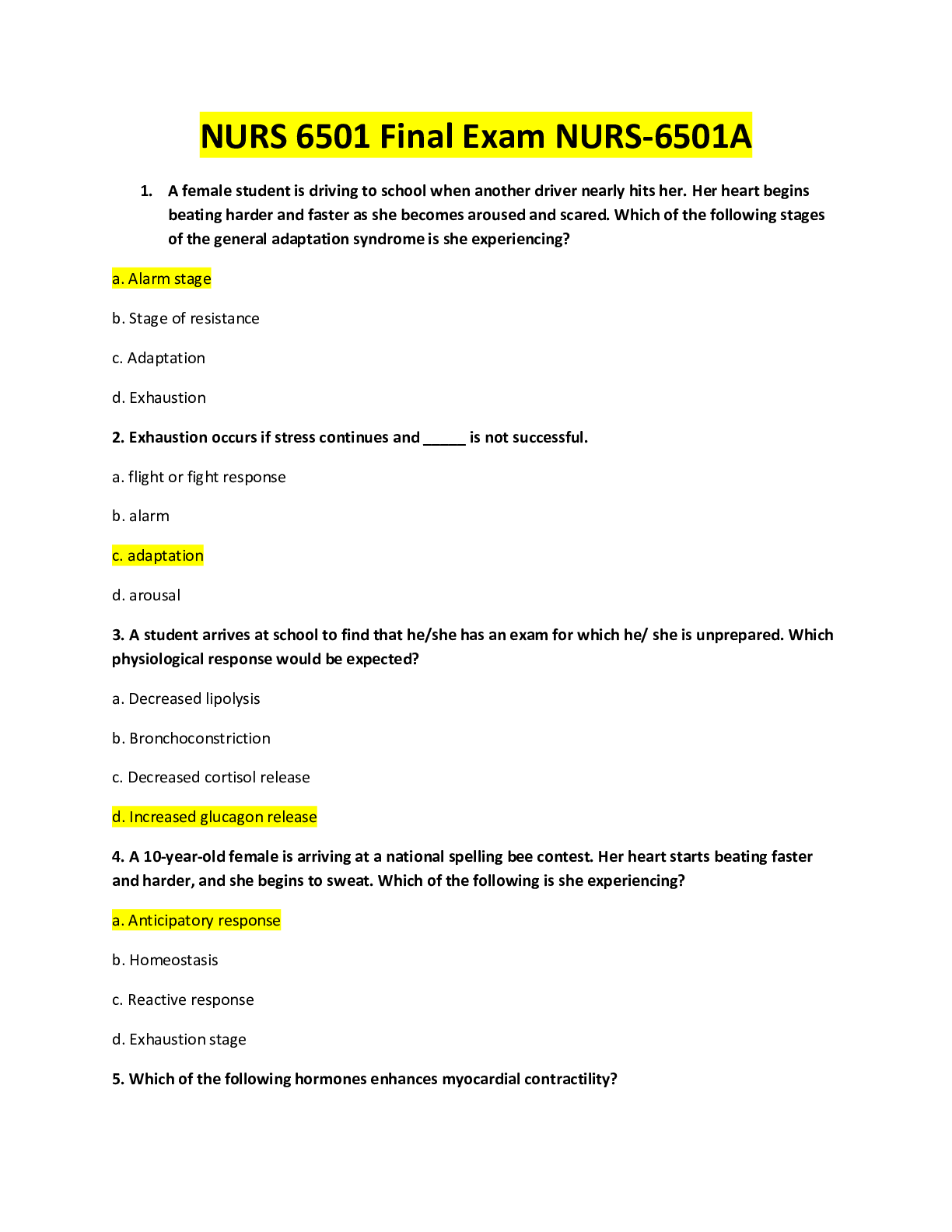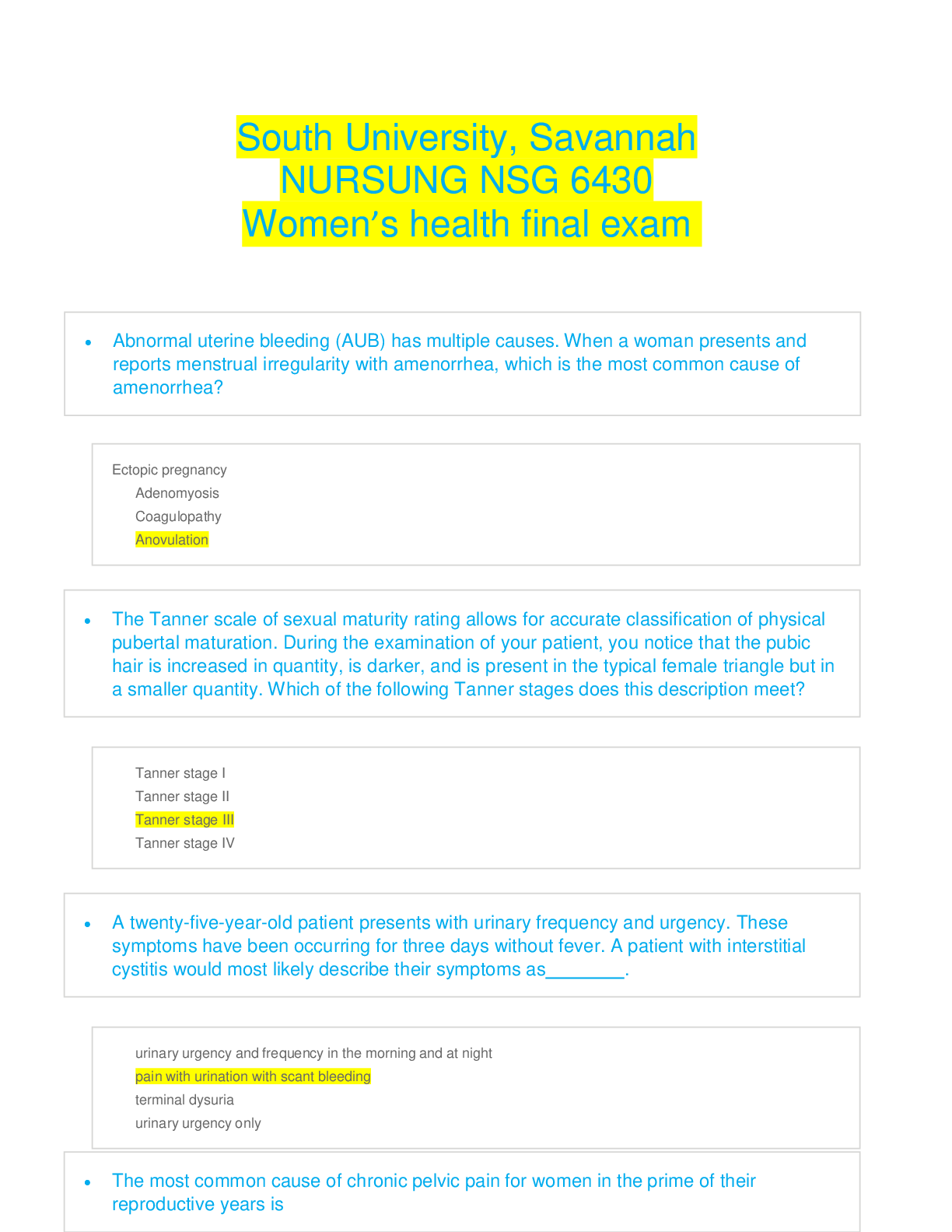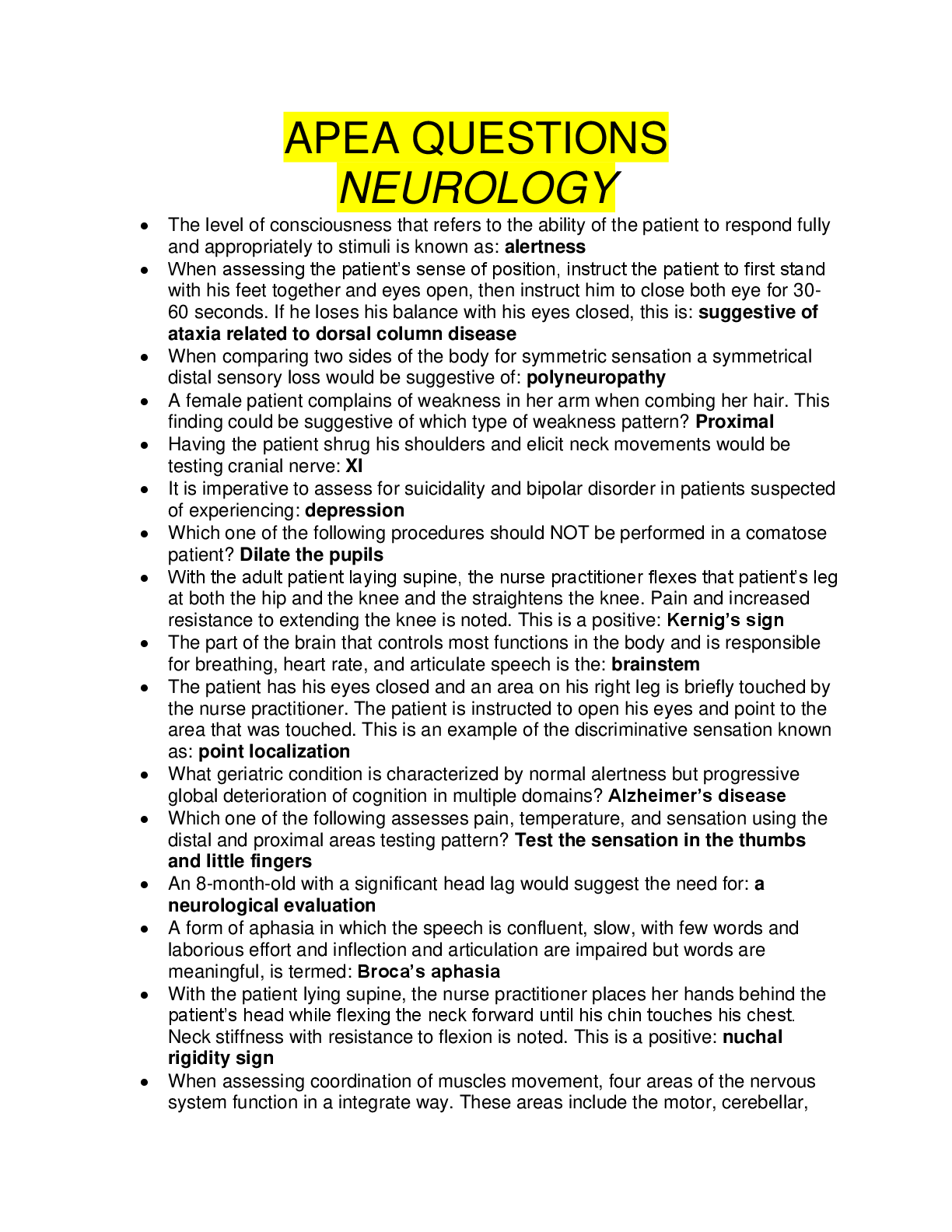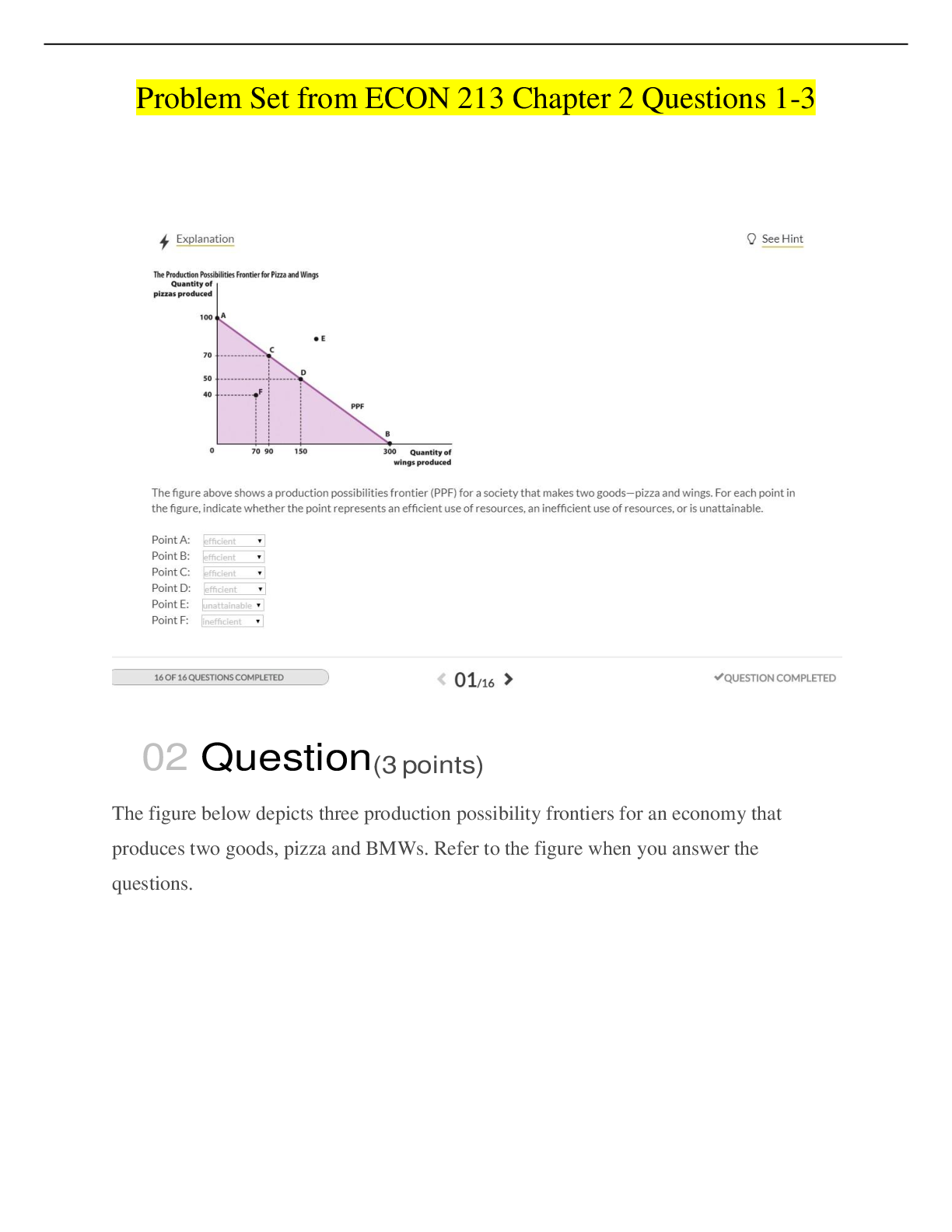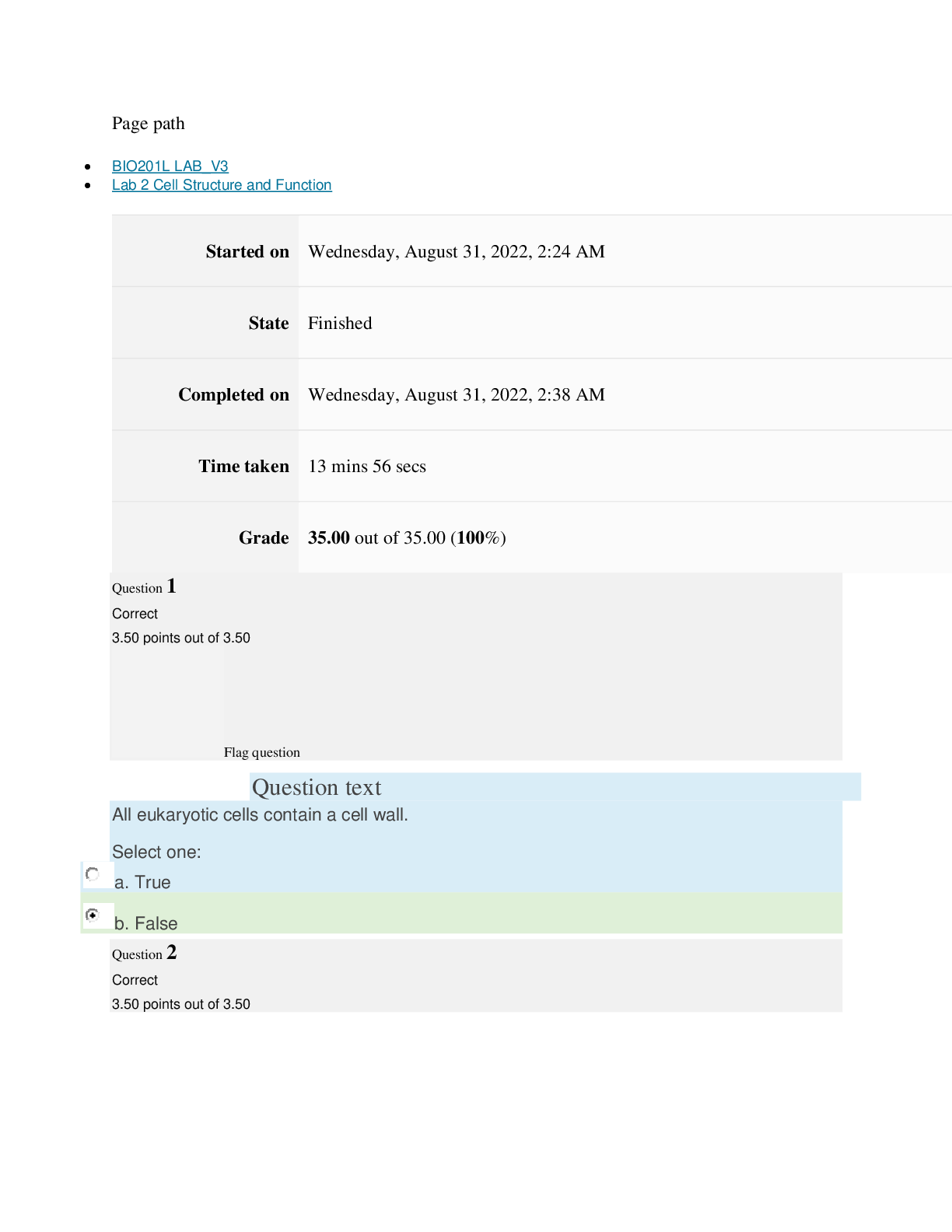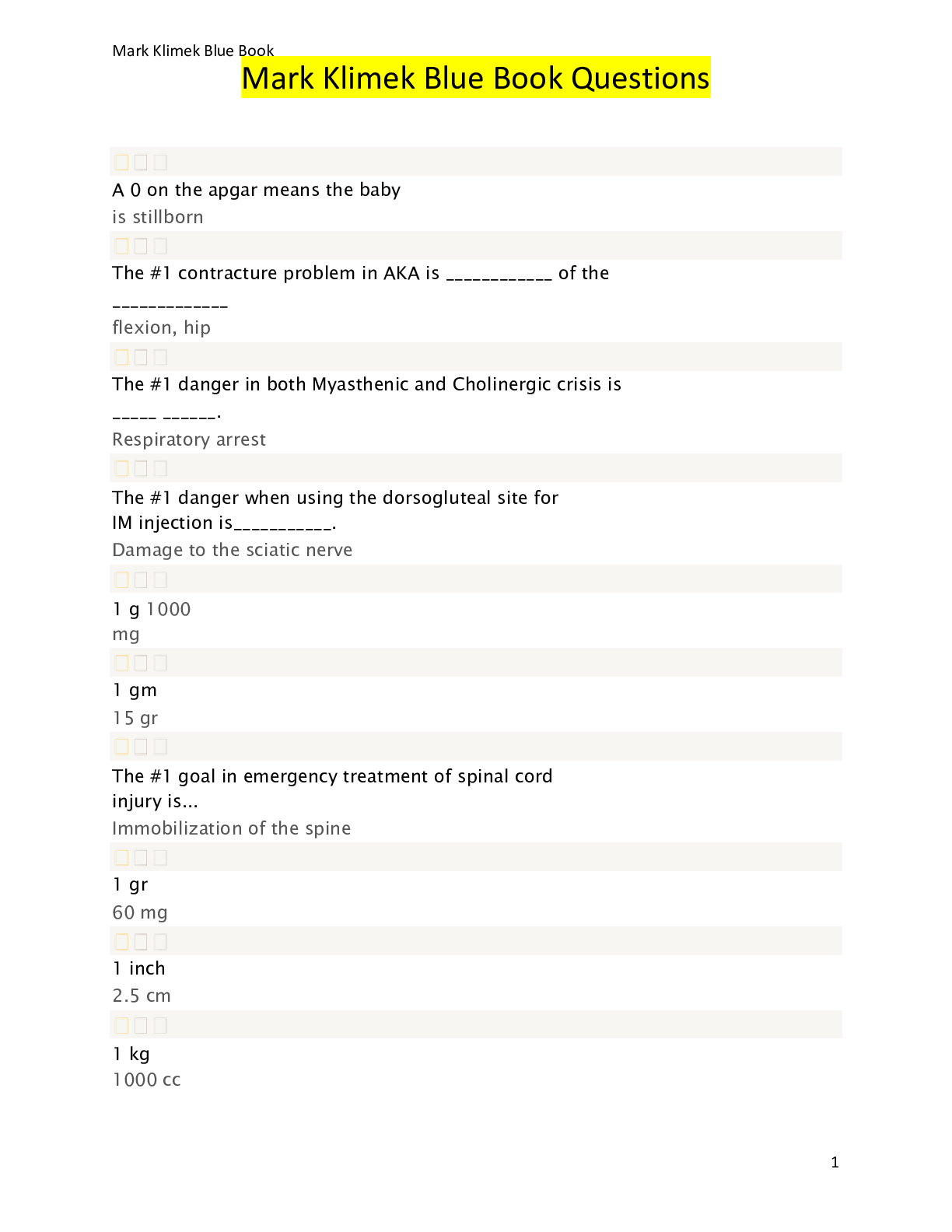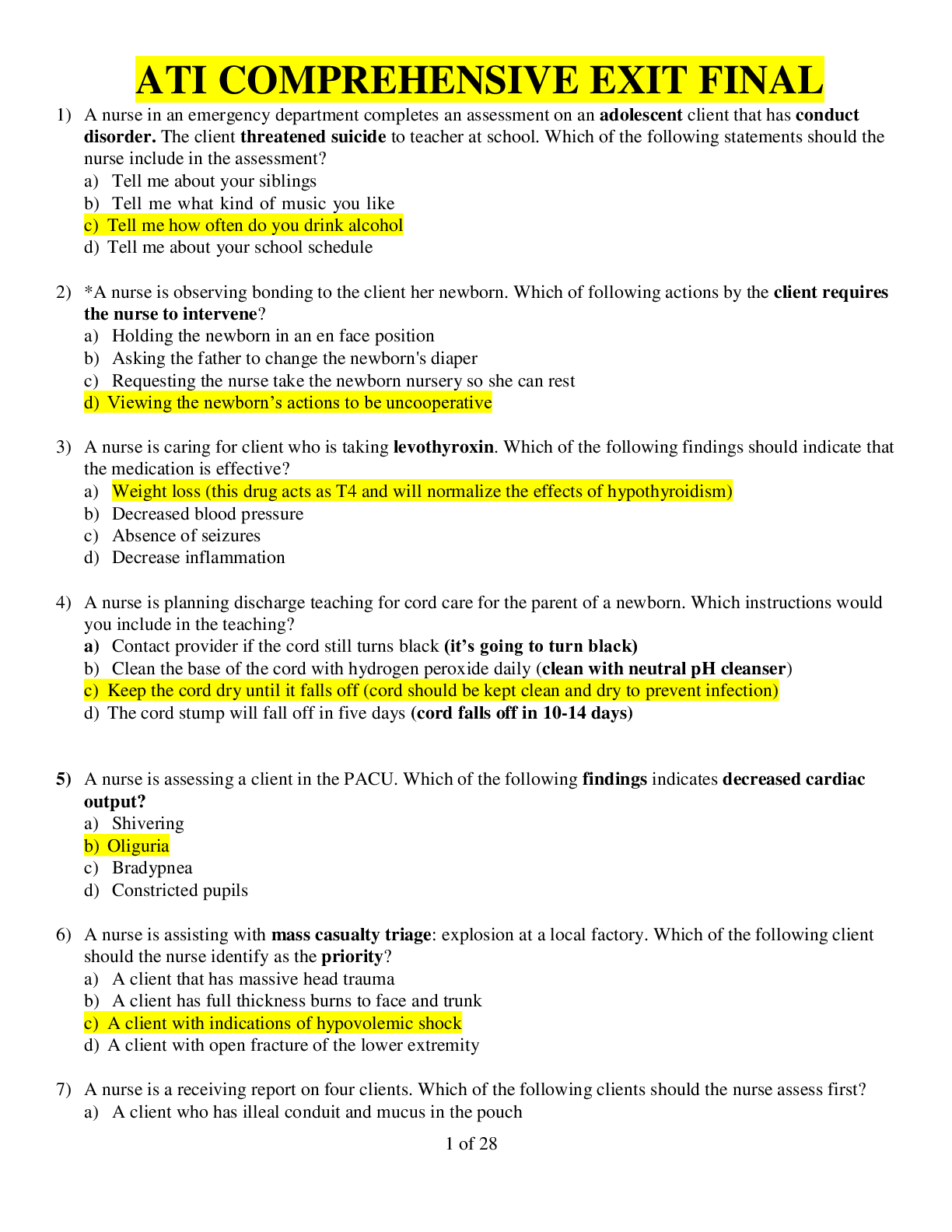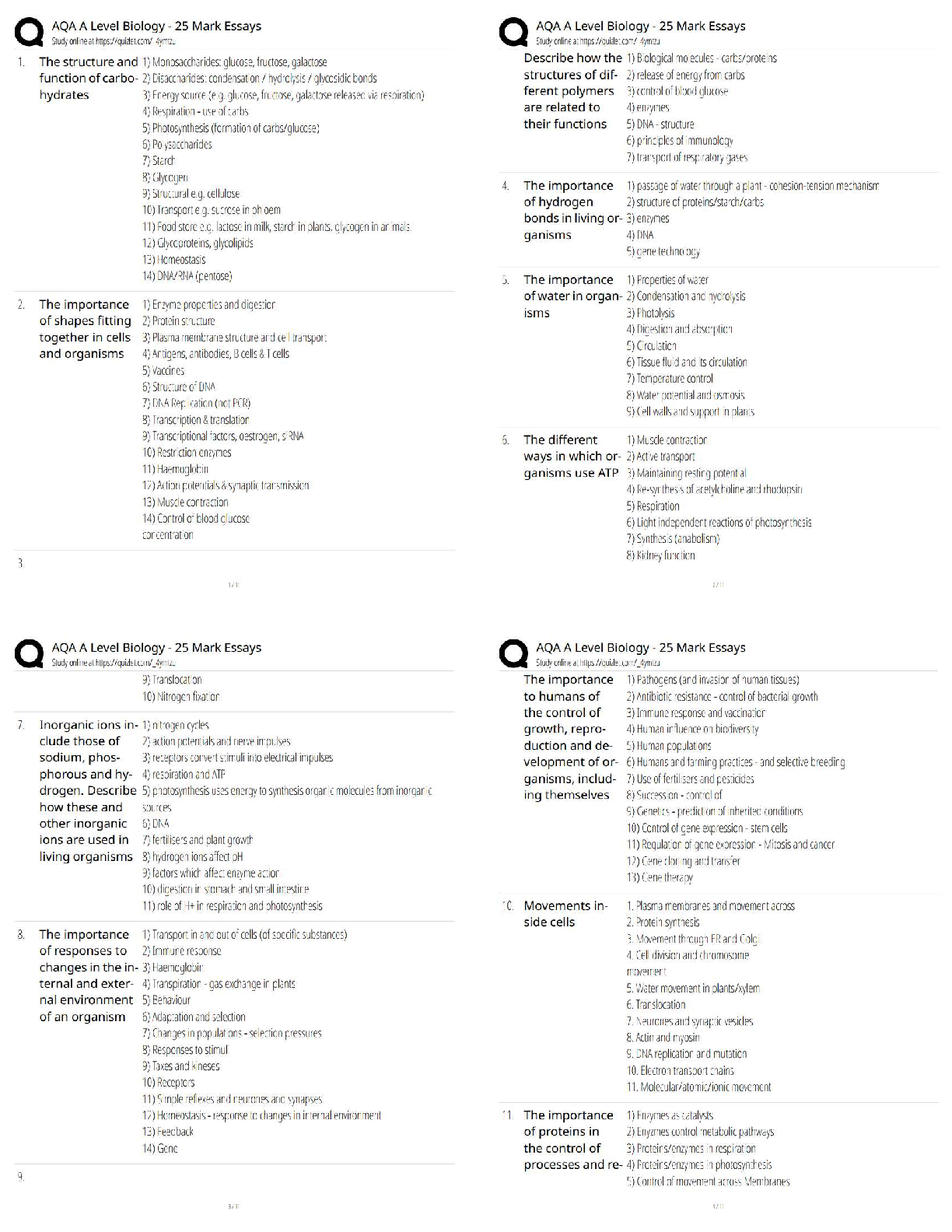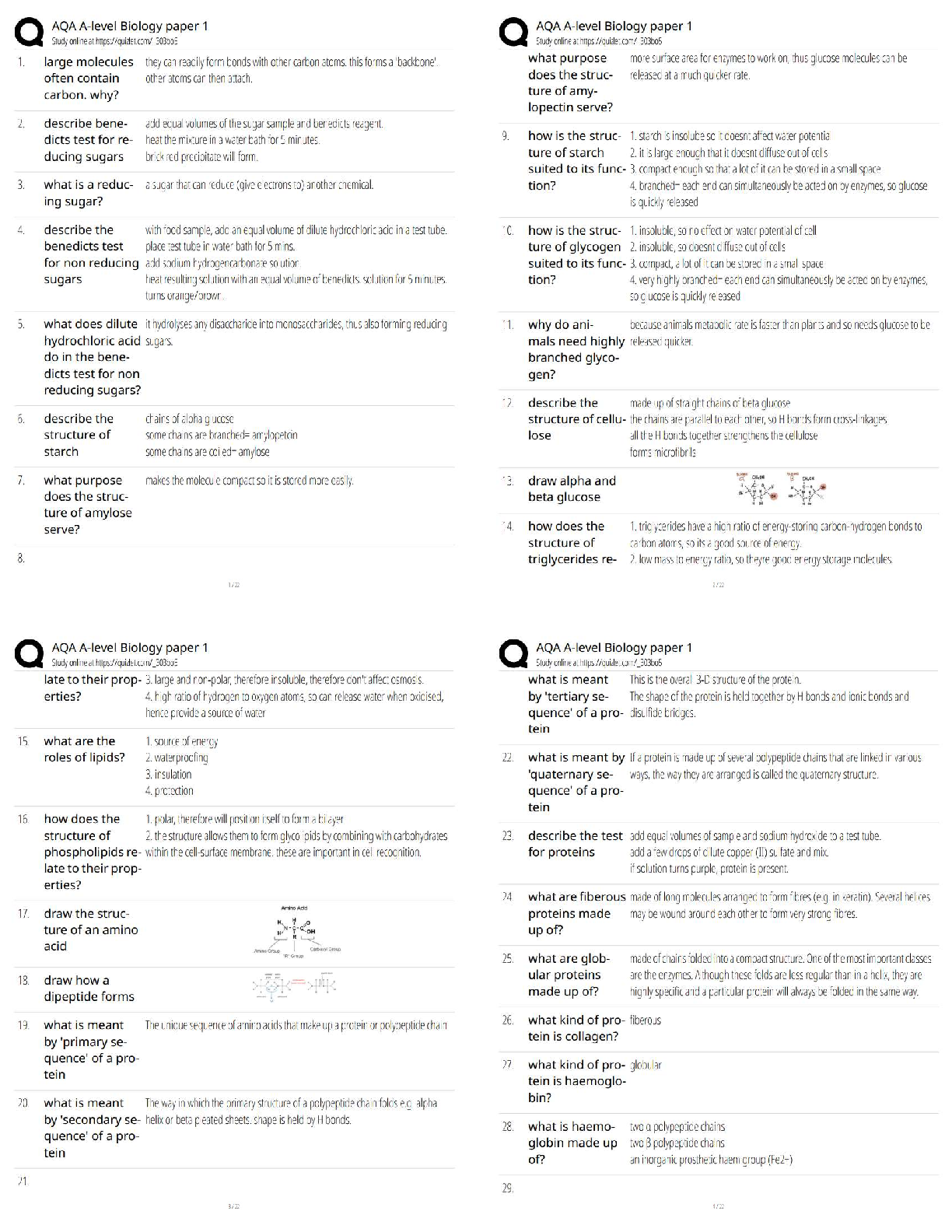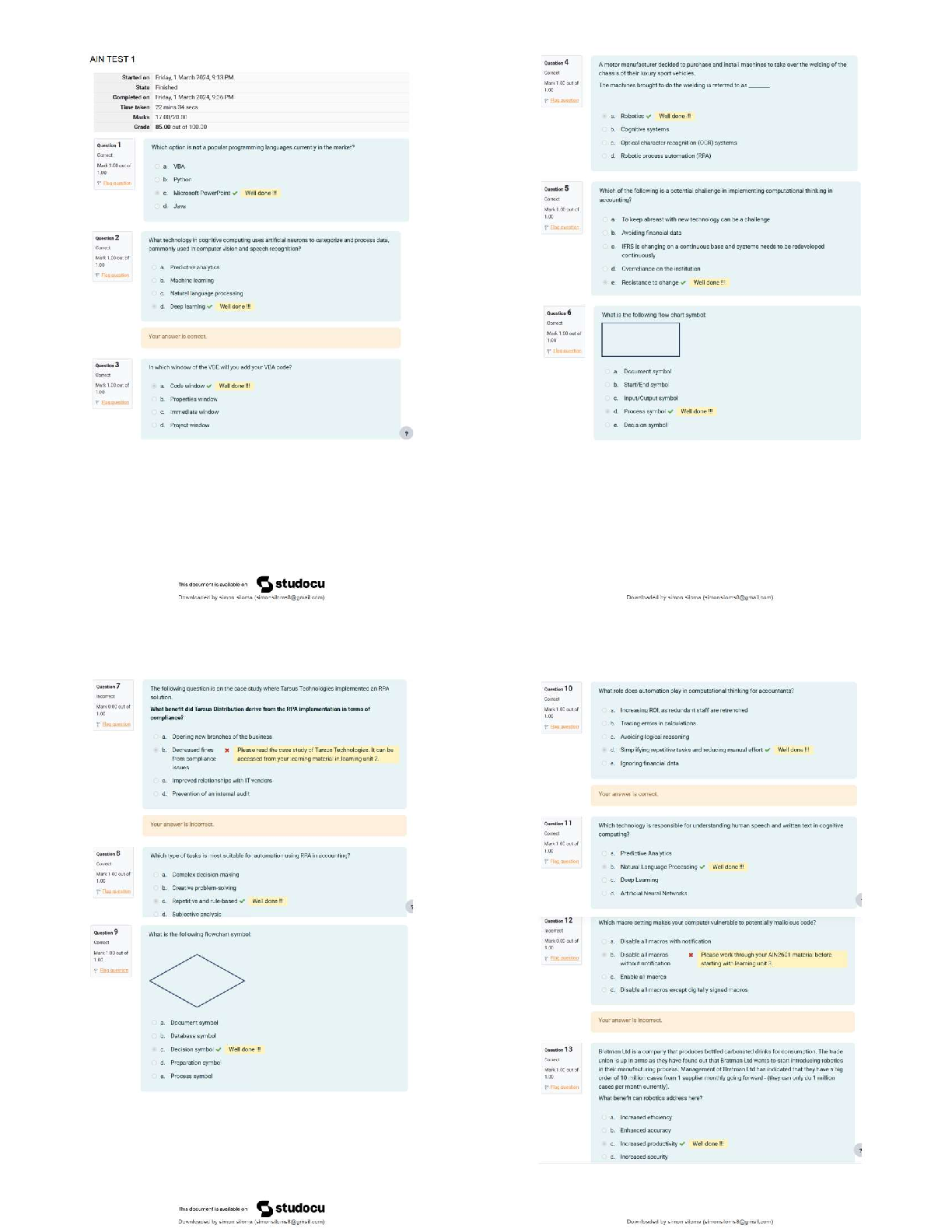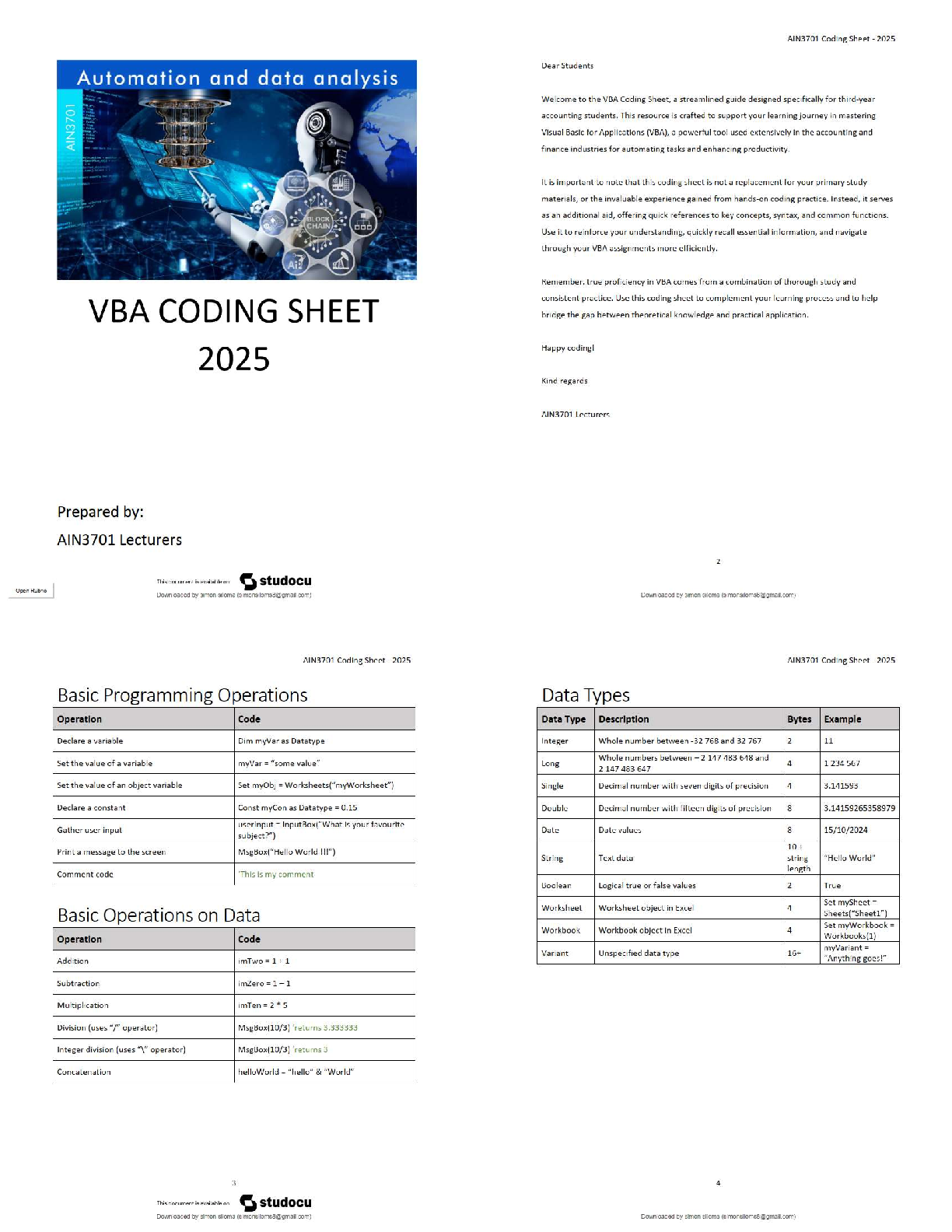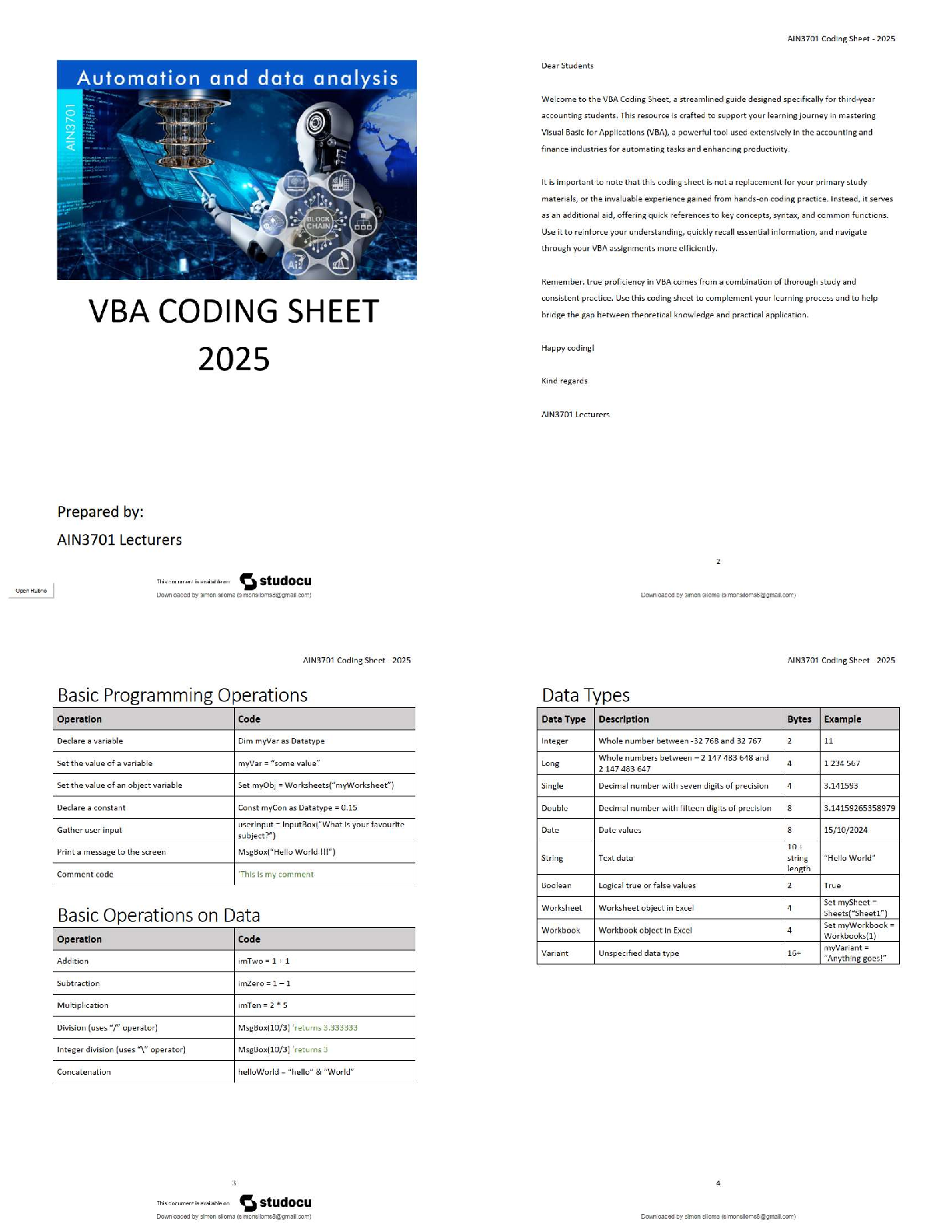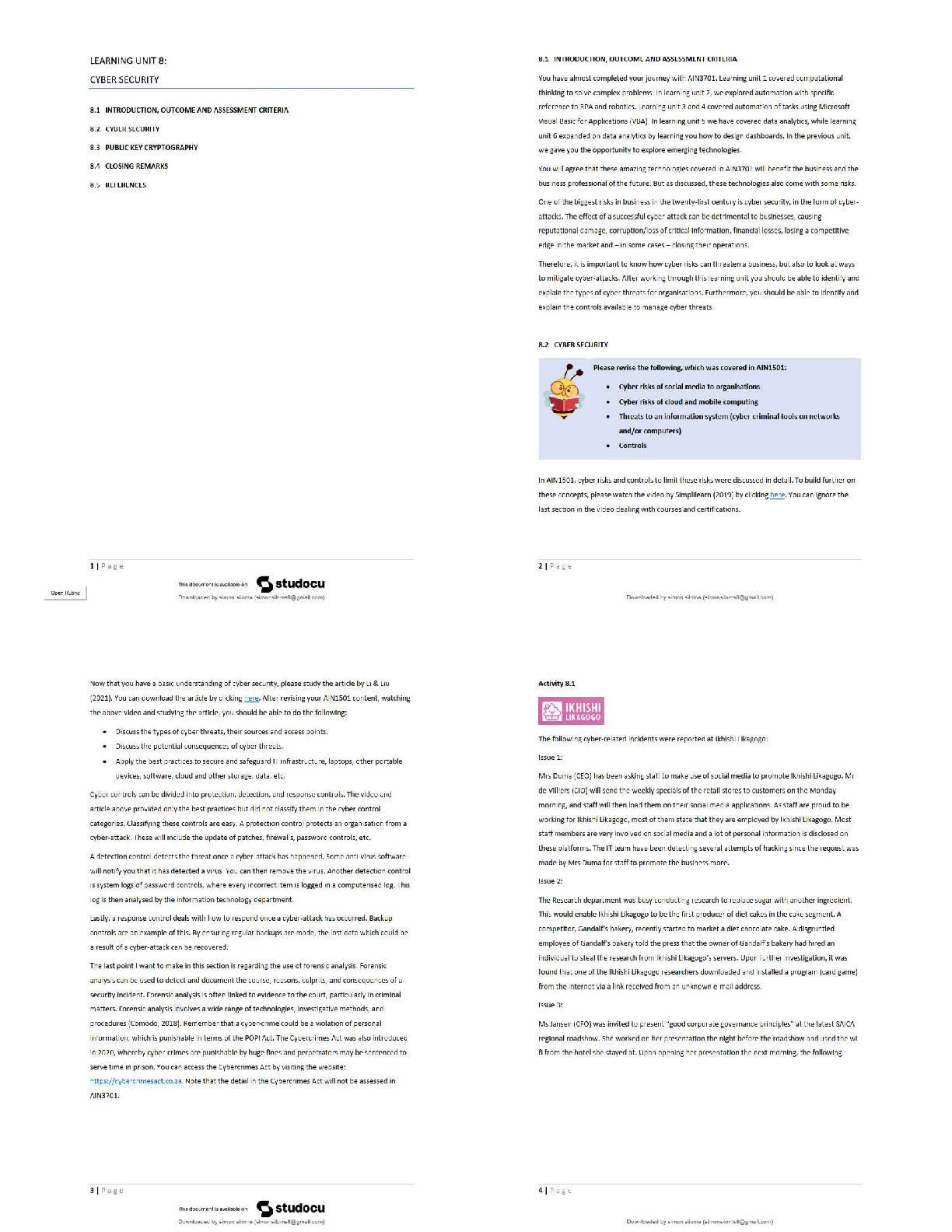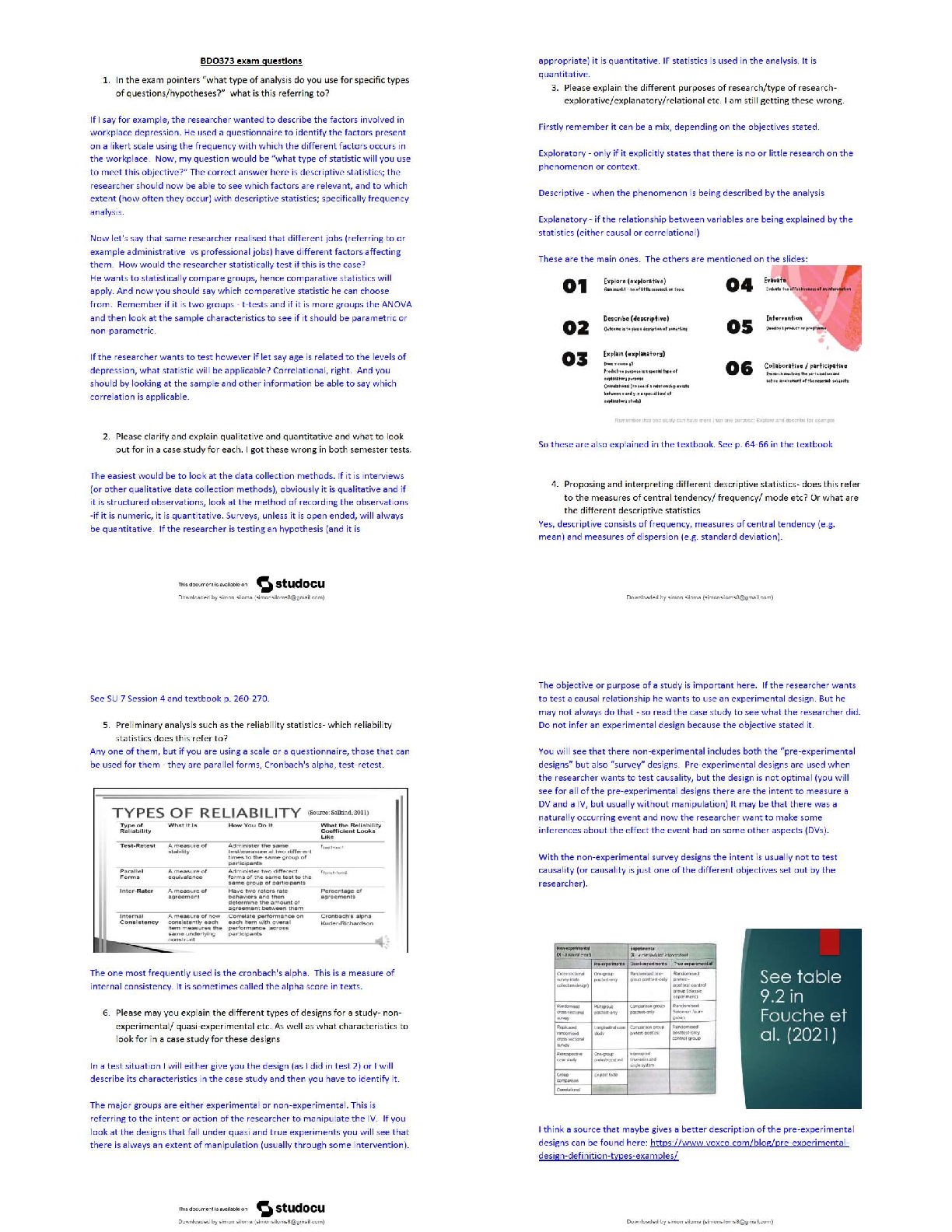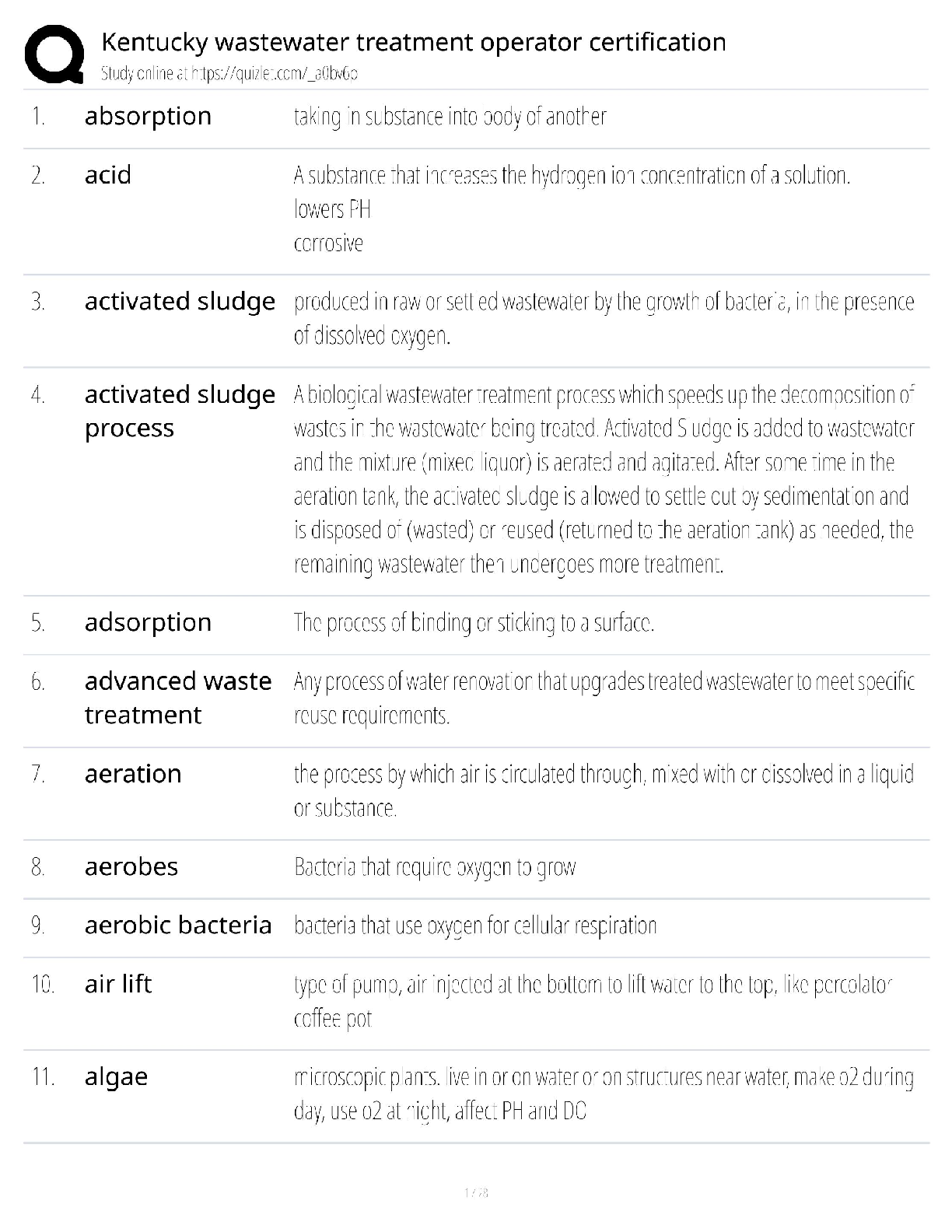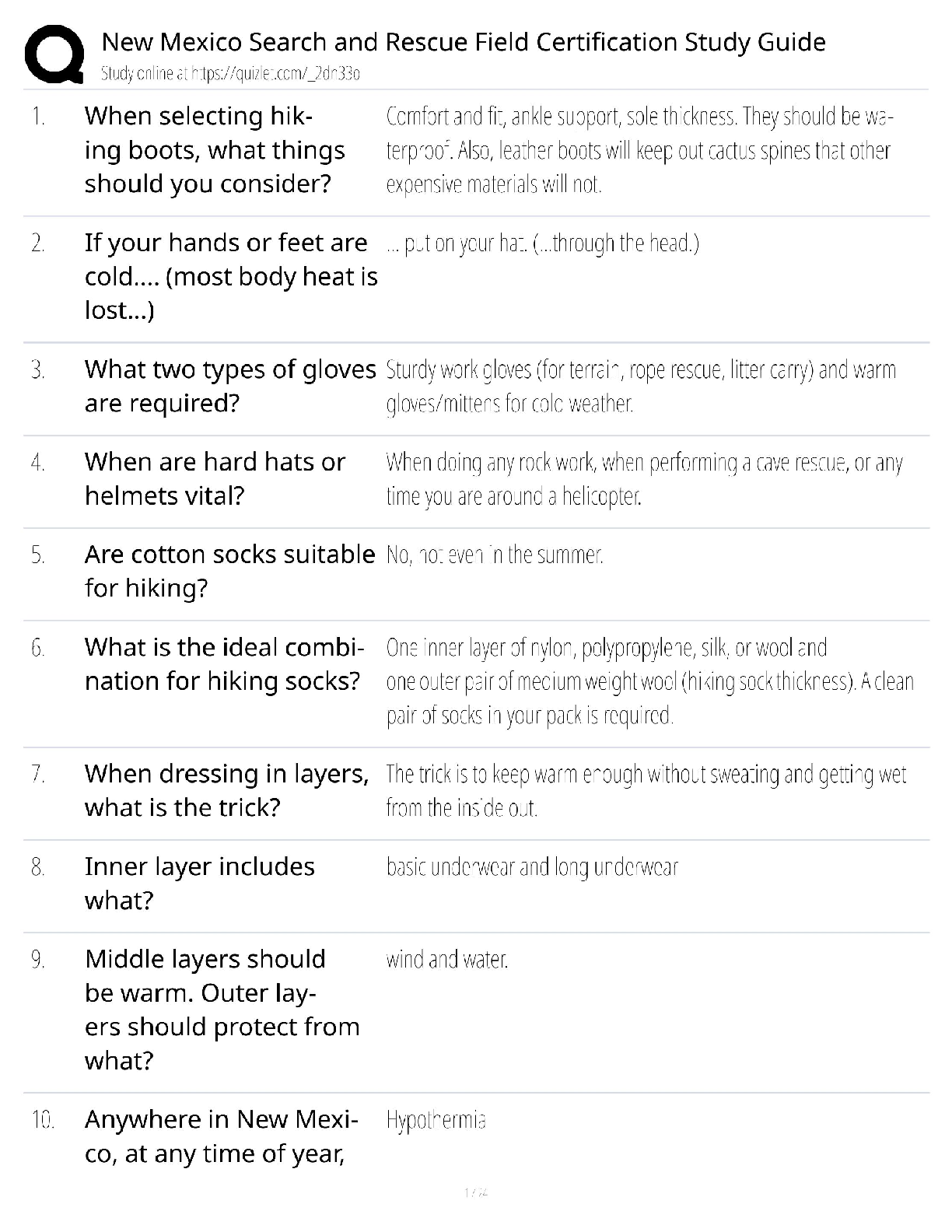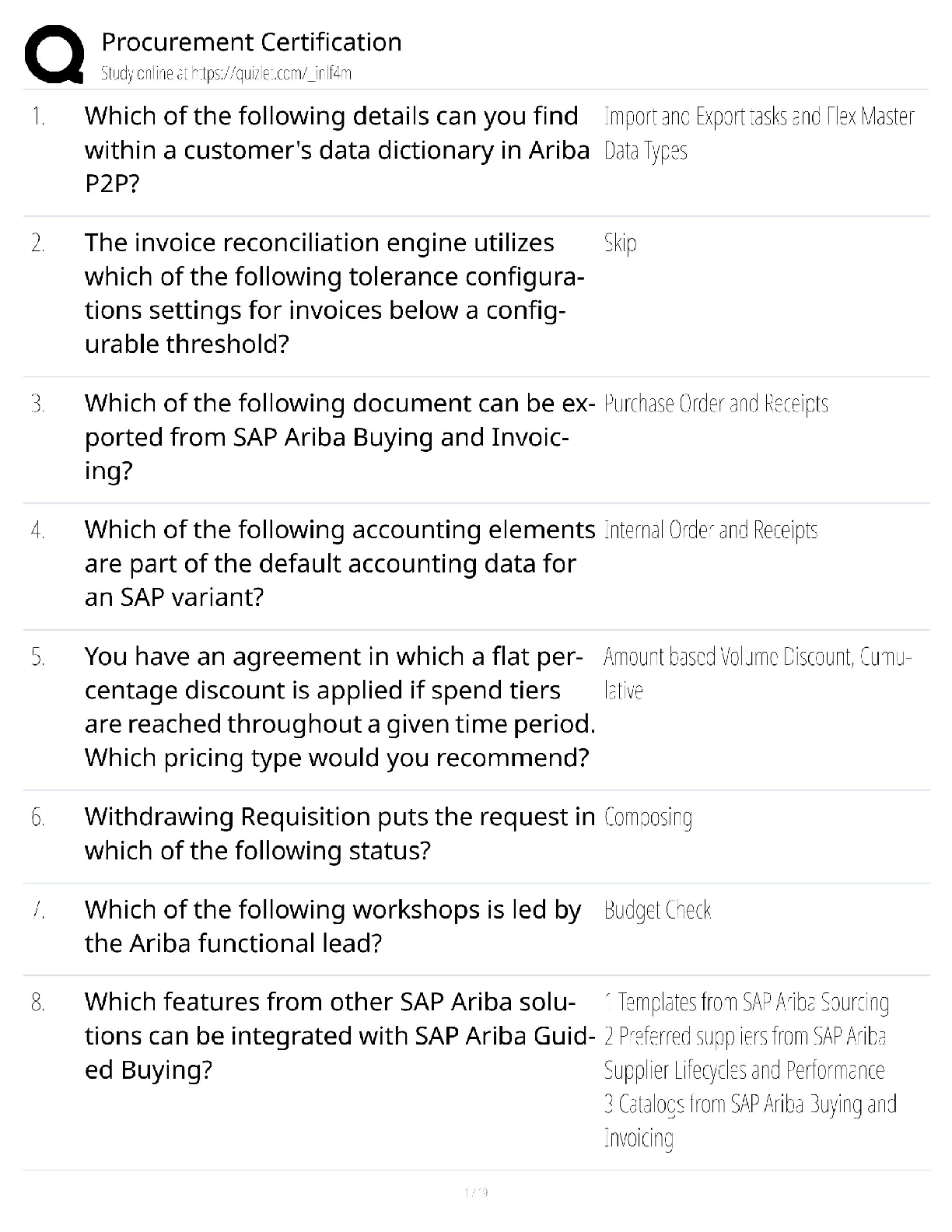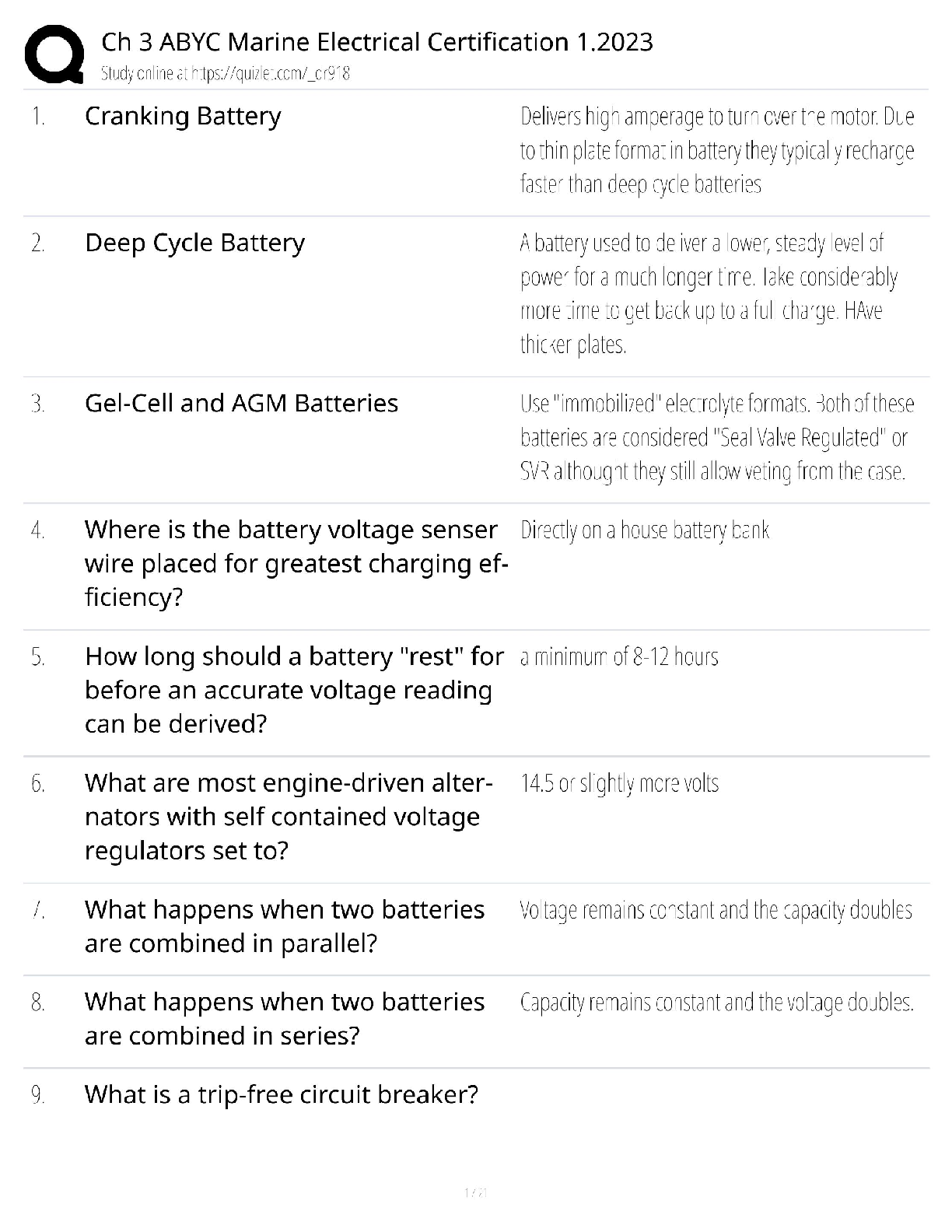NURS 6501 Final Exam NURS-6501A
1. A female student is driving to school when another driver nearly hits her. Her heart begins beating harder and faster as she becomes aroused and scared. Which of the following stages o
...
NURS 6501 Final Exam NURS-6501A
1. A female student is driving to school when another driver nearly hits her. Her heart begins beating harder and faster as she becomes aroused and scared. Which of the following stages of the general adaptation syndrome is she experiencing?
a. Alarm stage
b. Stage of resistance
c. Adaptation
d. Exhaustion
2. Exhaustion occurs if stress continues and _____ is not successful.
a. flight or fight response
b. alarm
c. adaptation
d. arousal
3. A student arrives at school to find that he/she has an exam for which he/ she is unprepared. Which physiological response would be expected?
a. Decreased lipolysis
b. Bronchoconstriction
c. Decreased cortisol release
d. Increased glucagon release
4. A 10-year-old female is arriving at a national spelling bee contest. Her heart starts beating faster and harder, and she begins to sweat. Which of the following is she experiencing?
a. Anticipatory response
b. Homeostasis
c. Reactive response
d. Exhaustion stage
5. Which of the following hormones enhances myocardial contractility?
a. Oxytocin
b. Prolactin
c. Epinephrine
d. Somatotropin
6. A 35-year-old male is diagnosed with a hormone-secreting tumor of the adrenal medulla. He experiences elevated blood pressure and increased anxiety. Which of the following hormones is the predominant one released by the tumor?
a. Antidiuretic hormone
b. Acetylcholine
c. Norepinephrine
d. Cortisol
7. Stress induces sympathetic stimulation of the adrenal medulla. This causes the secretion of catecholamines, which include:
a. epinephrine and aldosterone.
b. norepinephrine and cortisol.
c. epinephrine and norepinephrine.
d. cortisol and aldosterone.
8. A nurse recalls that stress-induced stimulation of the adrenal cortex causes it to secrete:
a. estrogen.
b. cortisol.
c. parathyroid hormone.
d. adrenocorticotropin hormone (ACTH).
9. Stress-induced catecholamine release from the adrenal medulla may result in:
a. decreased blood flow to the brain.
b. elevated blood pressure.
c. decreased glycogen synthesis.
d. decreased muscle contraction.
10. When a patient is diagnosed with a hormone-secreting tumor of the adrenal cortex, which physiological response would be expected?
a. Decreased blood pressure
b. Increased incidence of gastric ulcers
c. Increased lipogenesis of extremities
d. Decreased gastric secretion
11. When assessing the effects of elevated β-endorphins in a patient, which of the following should the nurse monitor?
a. Peripheral vasoconstriction
b. Hyperglycemia
c. Pain inhibition
d. Decreased immune cell activity
12. After teaching about coping, which information indicates a correct understanding? Coping is best defined as the process of:
a. adjusting to disease.
b. preventing psychological distress.
c. mediating anger.
d. managing stressful challenges
13. When teaching about the stress-age syndrome, what information should the nurse include? (select all that apply)
a. Decreased cortisol secretion
b. Decreased thyroxine
c. Immunodepression
d. Increased catecholamine secretion
e. Hypercoagulation of the blood
f. Free-radical damage
14. When a patient uses repression to deal with psychological stress, which of the following assessment findings should the nurse monitor for? (select all that apply)
a. Decreased monocyte counts
b. Increased eosinophil counts
c. Decreased serum glucose
d. Increased pulse rates
e. Increased medication reactions
[Show More]
